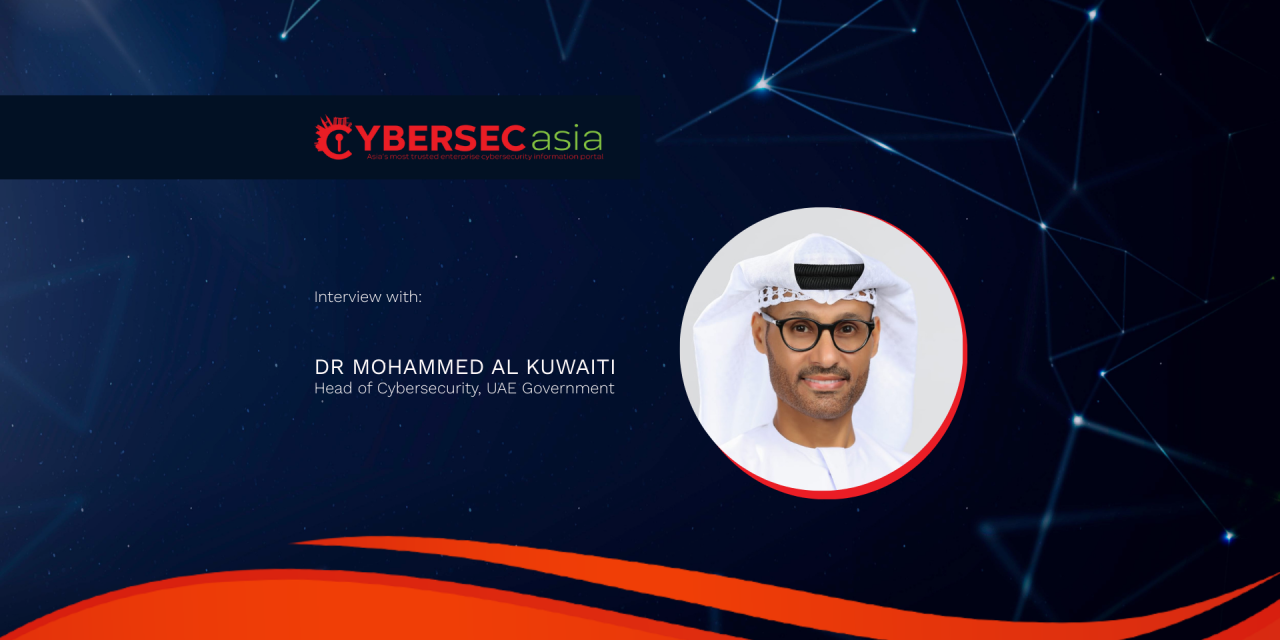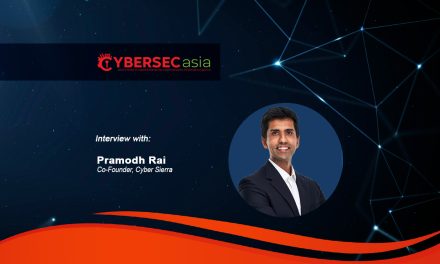The UAE’s national cybersecurity strategy aims to secure the country’s digital future, positioning it as a safe and innovative hub for businesses and residents.
At GITEX Asia held in Singapore in April 2025, several sessions touched on the topic of government leaders’ strategic roles in regional and international collaboration in cybersecurity and AI, as well as in ensuring resilience as cities become ‘smarter’.
At the event, we managed to catch up with Dr Mohammed Al Kuwaiti, Head of Cybersecurity, UAE Government, both onstage and offstage. Here, we publish Dr Al Kuwaiti’s insights from his responses to some of our questions:
As head of the UAE Cybersecurity Council (CSC), what is your charter?
Dr Al Kuwaiti: The UAE Cyber Security Council’s mission is to develop a comprehensive cybersecurity strategy and ensures a safe and strong cyber infrastructure. It has legal authority over all aspects pertaining to securing the cyberspace for the entire nation.
Responsible for charting the cybersecurity strategy that equips the UAE to enter the digital era with capabilities to deal with new threats, it also ensures UAE’s leadership in cybersecurity globally – towards establishing the UAE as a leading trusted digital hub supporting the nation’s digital transformation agenda and the digital future of all residents who make UAE their home.
Towards that end, as CSC head, I lead the Council to outline an implementation plan to protect the UAE cyberspace through emerging technologies such as Cloud, Big Data and AI in a whole-of-government approach, coordinating and orchestrating efforts among all government entities via a unified platform built and managed by the Council.
The Council aims to contribute to the nation’s legal and regulatory frameworks for cybersecurity and to secure both current and emerging technologies. It also responsible for building a vibrant ecosystem for cyber security across UAE driving innovation and stimulating economic growth through collaboration with industry, academia and international cyber diplomacy.
The Council is also responsible for pioneering and implement awareness and capacity development initiatives across UAE to enhance the safety and security of the UAE populace, in line with leadership’s vision.
What do you consider the key components of a national cybersecurity strategy? Dr Al Kuwaiti: The UAE has built its reputation as a global leader in digital transformation, and the launch of its National Cybersecurity Strategy 2025-31 reinforces this leadership. The strategy underscores the UAE’s commitment to enhancing cybersecurity as a core pillar of its digital transformation agenda. With cyberthreats becoming increasingly sophisticated, the strategy aligns with the country’s long-term vision to protect critical infrastructure, businesses, and individuals from emerging cyber risks.
This national cybersecurity strategy is based on five main pillars: governance, protection, innovation, establishing and building, and partnership. strategy aims to establish a cohesive and highly effective governance framework for the cybersecurity sector, guaranteeing a secure, resilient, and sound digital environment, enable the safe and swift adoption of innovations, enhance national capabilities in digitization and cybersecurity, and bolster partnerships and collaborative relations at both national and international levels.
Designed to enhance and safeguard the UAE’s national digital assets, and enable the safe and rapid adoption of innovations, our National Cybersecurity Strategy includes specific goals and initiatives such as strengthening and growing the national economy, in addition to building national capacities, promoting international cooperation in information sharing and developing new cybersecurity standards to enhance institutional compliance and security measures, and fostering a culture of cybersecurity awareness.
Governments and enterprises largely agree that regional and international collaboration and awareness are key to national and business cyber resiliency. How is the CSC involved in collaborative efforts, both within the nation and internationally?
Dr Al Kuwaiti: As we stand on the cusp of a new era powered by emerging technologies, we recognize that the rise in AI-driven attacks and widening cyber capabilities demands stricter vigilance, innovation, and cooperation to secure the future, and partnering with global academia, research institutes and policy makers to share knowledge, amplify impact, and promote intelligence sharing.

















